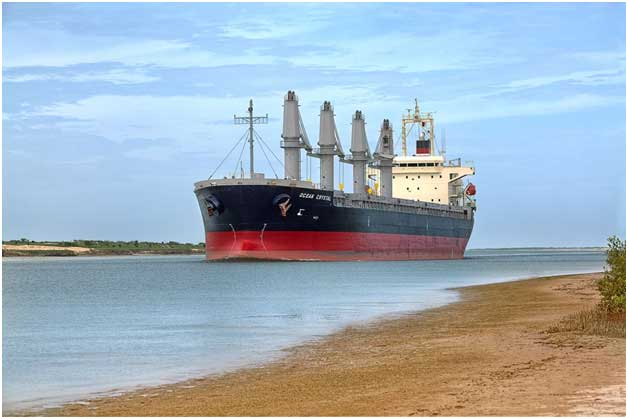US LNG Projects Win Higher Processing Fees as Interest Rates Climb
HOUSTON (Reuters) — Long-term buyers of U.S. LNG are willingly agreeing to higher liquefaction fees at newer export projects, according to analysts and developers familiar with the matter.
The U.S. emerged in 2022 as the world's second largest LNG exporter on plentiful supplies of natural gas and relatively low processing costs per metric ton of LNG. But rising interest rates and higher construction costs have pushed up liquefaction fees, also known as tolling fees.
"We would naturally expect increased costs of project development, due to higher interest rates or other factors, to have a corresponding impact on liquefaction fees," said Lyle Hanna, a vice president at Commonwealth LNG, one of several U.S. LNG export projects working toward financial approvals.
Since Russia's invasion of Ukraine last year, the Dutch Title Transfer Facility (TTF) price has been much higher and is unlikely to return to the pre-invasion price levels, said Jason Bennett, a partner at law firm Baker Botts who negotiates LNG contracts.
Bennett said the willingness by long-term customers to pay higher tolling fees and ultimately higher prices for U.S. LNG was because newer projects are still providing very good margins due to the low gas prices at the Henry Hub, the main trading point for U.S. natural gas futures.
"U.S. LNG remains the best source of low-cost LNG in the world...If the price used to be $2.25 (per million British thermal units) and it's $2.75 now, ok, but it's still the cheapest price of LNG anyway," said Bennett.
The most recently approved project — NextDecade's Rio Grande LNG — increased its liquefaction fee as project costs rose, said Jason Feer, global head of business intelligence at LNG shipping and brokering firm Poten & Partners.
"NextDecade went back to their offtakers and sought an adjustment of their contract levels, and our understanding is most of them agreed," Feer told Reuters.
NextDecade did not reply to questions about its processing fees. However, in a July 20 filing with the Department of Fossil Energy and Carbon Management, NextDecade revealed amendments to its contracts with all its long-term customers except France's TotalEnergies and Japanese trading house Itochu.
"The offtakers agreed because the project was very far advanced and was ready to go to FID (financial investment decision) and I think some of those contracts were very low-priced by current standards," Feer said.
The largest U.S. LNG exporter Cheniere Energy has cut its project financing costs by funding its newest Stage 3 expansion project from its balance sheet.
"Increasing our own equity in our projects and thereby reducing the level of debt required us to fund our expansions and is a competitive advantage," the company said.
Other developers are turning to increased equity investment in new projects to reduce the impact of higher interest rates on finance costs, said Poten's Feer.
Related News
Related News

- Energy Transfer to Build $5.3 Billion Permian Gas Pipeline to Supply Southwest
- Enbridge Sees High Demand to Expand 593-Mile Canada-to-U.S. Gulf Oil Pipeline
- Strike Pioneers First-of-Its-Kind Pipe-in-Pipe Installation on Gulf Coast with Enbridge
- 208-Mile Mississippi-to-Alabama Gas Pipeline Moves Into FERC Review
- Chesapeake, AEP to Build $10 Million Ohio Gas Pipeline for Data-Center Power
- 275-Mile Texas-to-Oklahoma Gas Pipeline Enters Open Season
- Enbridge Sees High Demand to Expand 593-Mile Canada-to-U.S. Gulf Oil Pipeline
- LNG Canada Start-Up Fails to Lift Gas Prices Amid Supply Glut
- Strike Pioneers First-of-Its-Kind Pipe-in-Pipe Installation on Gulf Coast with Enbridge
- Trump Claims Japan, U.S. to Form Joint Venture for Alaska LNG Exports





Comments